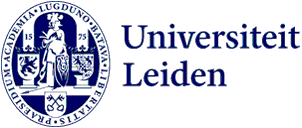
Introducing: Sander van der Horst
Sander van der Horst recently joined the Institute for History and the Royal Institute for Southeast Asian and Caribbean Studies (KITLV-KNAW). He is a PhD candidate in Cultural Histories & Decolonization in Southeast Asia. Below, he introduces himself.
Since the beginning of the 21st century, the word ‘decolonization’ has grown into a catch-all phrase for virtually every kind of emancipatory politics. During my bachelor studies in political science at the University of Amsterdam (2014-2015) and the Freie Universität Berlin (2015-2018), I came across the term for the very first time. Struck by the critical force of the work of Edward Said, Frantz Fanon, Gayatri Spivak and many others, I became interested in the many issues relating to colonial history, decolonization and postcolonial futures.
It was through this academic detour that I arrived in Leiden to study colonial history. What fascinated me was the history that many postcolonial and decolonial theories talked about: after all, how does the ‘empirical’ study of the past contribute to better understandings of ‘decolonization’? And so, in 2019, I started my research master’s degree in Colonial and Global History. Increasingly, I became acquainted with Dutch colonial history and the many political repercussions it continues to have across the globe. Although this shift from political science to history was a large one, I was able to put my previous experience as researcher for the Lebanese NGO and archive UMAM Documentation and Research to the test.

Despite the sometimes-paralyzing pandemic, my years in Leiden were nothing short of inspiring. Two of the major events were my activities as research intern of the KITLV-KNAW at the Special Collections of the Leiden University Library (UBL) and exchange student at Université Paris 8 in spring 2022. Ultimately, I wrote my thesis about the interwar anticolonialism of the Netherlands, and the many political organizations and individuals connected to it. After all, uncovering the many histories of anticolonialism can lead to decolonizing and decentering historical narratives.
Carrying all these experiences with me into the present day, I am excited to conduct research at Leiden University as a PhD candidate. Taking the 1950s in Indonesia as a moment of political, social and cultural transition and production, I look at the ways in which peace movements and peace activists understood Indonesian decolonization against the backdrop of (former) Dutch colonization, early Cold War politics and nuclear (dis)armament. Charting both the internationalist activism of Indonesians abroad as well as international peace initiatives in Indonesia, I aim to shed a new light on Indonesian activism during the first postwar wave of decolonization worldwide.
By adding the perspectives of peace workers from different political backgrounds and convictions, I hope to formulate new visions of decolonization that informed the postcolonial politics of Indonesia and beyond. Analyzing the historical contingency of the term ‘decolonization’ in a specific Indonesian case, this research could also be of use in our day and age. Faced with the contemporary inequality between the global North and South on the one hand and with military conflicts across the world on the other, the story of these activists introducec new and historical implications of using both ‘decolonization’ and ‘peace’. In other words, this candidacy allows me to return to my very first academic interest.
I am eager to meet all of you and to talk about our projects! Maybe we will find ourselves in that famous and mysterious Dutch space called the wandelgangen…
